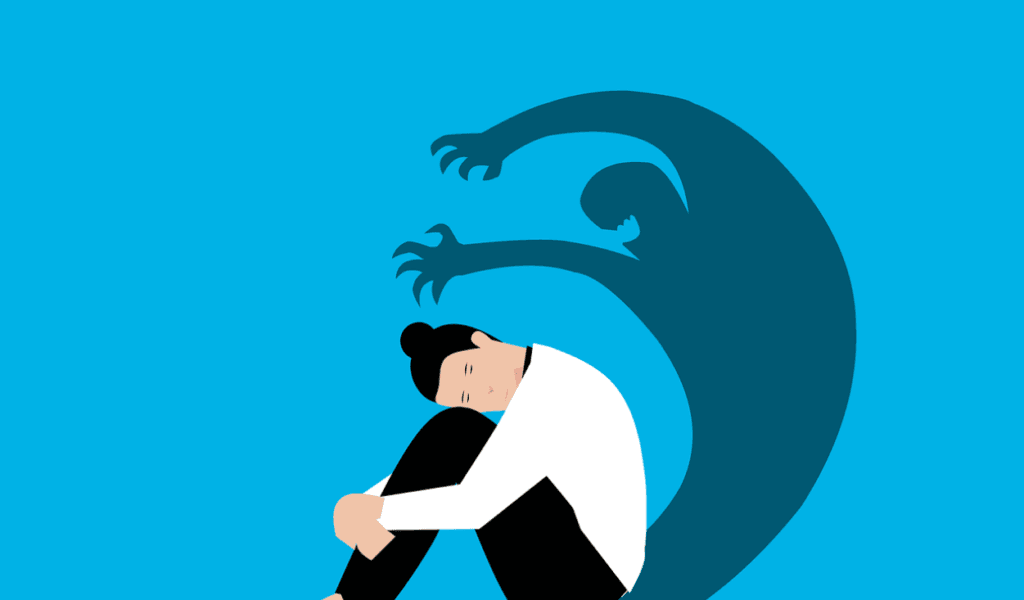Anxiety and Tension Headaches: Understanding the Connection
Table of Contents

Anxiety and Tension Headaches: Understanding the Connection
Ever feel like your head’s in a vice grip when you’re stressed? You’re not alone. Anxiety and tension headaches often go hand in hand, creating a not-so-fun feedback loop of discomfort. Let’s unpack this connection and explore ways to break free from the cycle.
The Anxiety-Headache Tango
What’s the Deal with Tension Headaches?
Tension headaches are like that annoying party guest who overstays their welcome. They’re characterized by a dull, aching sensation that feels like a tight band around your head. Not fun, right?
Anxiety: The Unwanted Dance Partner
Now, throw anxiety into the mix. It’s like adding caffeine to an already jittery system. Anxiety can ramp up muscle tension, leading to – you guessed it – more headaches.
The Chicken or the Egg?
Does Anxiety Cause Headaches?
Short answer: It can. Anxiety triggers a stress response in your body, causing muscles to tense up. Your head and neck muscles are prime targets, often resulting in that familiar tension headache.
Or Do Headaches Cause Anxiety?
Plot twist: Sometimes it’s the other way around. Chronic headaches can lead to anxiety about when the next one will strike. It’s a vicious cycle, like a dog chasing its tail.
Symptoms: When Your Head and Mind Team Up Against You
Physical Red Flags
- Dull, persistent pain
- Feeling of pressure around the forehead
- Tight neck and shoulder muscles
Mental Mayhem
- Racing thoughts
- Difficulty concentrating
- Irritability (because who wouldn’t be grumpy with a headache?)
The Science Behind the Struggle
Stress Hormones: The Troublemakers
When you’re anxious, your body releases stress hormones like cortisol. These hormones can increase muscle tension and inflammation, paving the way for headaches.
The Nervous System’s Role
Your autonomic nervous system goes into overdrive during anxiety, affecting blood flow and muscle tension. It’s like your body’s hitting the gas and brake at the same time.
Breaking the Cycle: Strategies for Relief
Mindfulness and Meditation
Taking a few minutes to breathe deeply and focus on the present can work wonders. It’s like hitting the reset button on your stress response.
Progressive Muscle Relaxation
This technique involves tensing and relaxing different muscle groups. It’s like giving your body a mini-massage from the inside out.
Exercise: The Natural Stress-Buster
Regular physical activity can help reduce both anxiety and tension headaches. It’s a two-for-one deal your body will thank you for.
Lifestyle Tweaks for Long-Term Relief
Sleep Hygiene: Your New Best Friend
Establishing a consistent sleep routine can help regulate stress hormones. Think of it as setting a curfew for your worries.
Nutrition: Fuel for Calm
Certain foods can help combat anxiety and headaches. Magnesium-rich foods, for example, are like nature’s chill pills.
Hydration: The Simplest Solution
Sometimes, a headache is just your body’s way of saying, “Hey, I’m thirsty!” Staying hydrated is like giving your brain a cool drink on a hot day.
When to Seek Professional Help
Talk Therapy: More Than Just Talk
Cognitive-behavioral therapy (CBT) can be incredibly effective for managing both anxiety and headaches. It’s like having a personal trainer for your mind.
Medical Intervention
Sometimes, you need a little extra help. Medications for anxiety or headaches might be necessary. It’s not admitting defeat; it’s strategically calling in reinforcements.
Conclusion
Anxiety and tension headaches might seem like an unbeatable duo, but you’ve got more power than you think. By understanding the connection and implementing these strategies, you can start to break free from the cycle. Remember, it’s a journey, not a sprint. Be patient with yourself and celebrate small victories along the way.
Ready to take the first step towards a clearer head and calmer mind? Start by picking one strategy from this article to try today. Whether it’s a quick meditation session or swapping that extra coffee for water, every small action counts. Your future, headache-free self will thank you!
FAQs
- Can tension headaches be a symptom of an anxiety disorder?
Yes, tension headaches are often associated with anxiety disorders. They can be both a symptom and a trigger for anxiety. - How long do anxiety-induced tension headaches typically last?
These headaches can last anywhere from 30 minutes to several days. The duration can vary depending on the individual and the level of anxiety. - Are there any specific foods that can help reduce anxiety and tension headaches?
Foods rich in magnesium (like spinach and almonds) and omega-3 fatty acids (like salmon) may help reduce both anxiety and headaches. - Can children experience anxiety-related tension headaches?
Yes, children can experience tension headaches related to anxiety, especially in high-stress situations like school or social events. - Is it possible to have a tension headache without feeling anxious?
Absolutely. While anxiety can trigger tension headaches, they can also occur due to other factors like poor posture or eye strain. - How effective are over-the-counter pain relievers for anxiety-related tension headaches?
OTC pain relievers can provide temporary relief, but addressing the underlying anxiety is crucial for long-term management. - Can relaxation techniques really help with severe tension headaches?
Yes, techniques like deep breathing and progressive muscle relaxation can be surprisingly effective, even for severe headaches, by reducing overall muscle tension.
Citations:
[1] https://www.mountsinai.org/health-library/diseases-conditions/tension-headache
[2] https://www.webmd.com/migraines-headaches/tension-headaches
[3] https://www.hopkinsmedicine.org/health/conditions-and-diseases/headache/tension-headaches
[4] https://www.mountsinai.org/health-library/condition/tension-headache
[5] https://www.healthline.com/health/tension-headache
[6] https://www.nhs.uk/conditions/tension-headaches/
[7] https://my.clevelandclinic.org/health/diseases/8257-tension-headaches
[8] https://www.mayoclinic.org/diseases-conditions/tension-headache/symptoms-causes/syc-20353977













Post Comment